3 pregnant women were stuck in the hospital on bedrest. They bonded over a scary diagnosis
When Brooke Tanton’s infant son, Andrew, peed all over her, she was thrilled — and she knew exactly who she was going to tell.
Getting peed on would be something to tolerate, not celebrate, for most parents. But it was a big deal for Tanton and her two friends, Alex Rose and Lauren Malveaux.
The three women bonded in the hospital during weeks of bedrest when they were pregnant, sharing their hopes and fears as they all underwent fetal surgery for their babies' spina bifida.
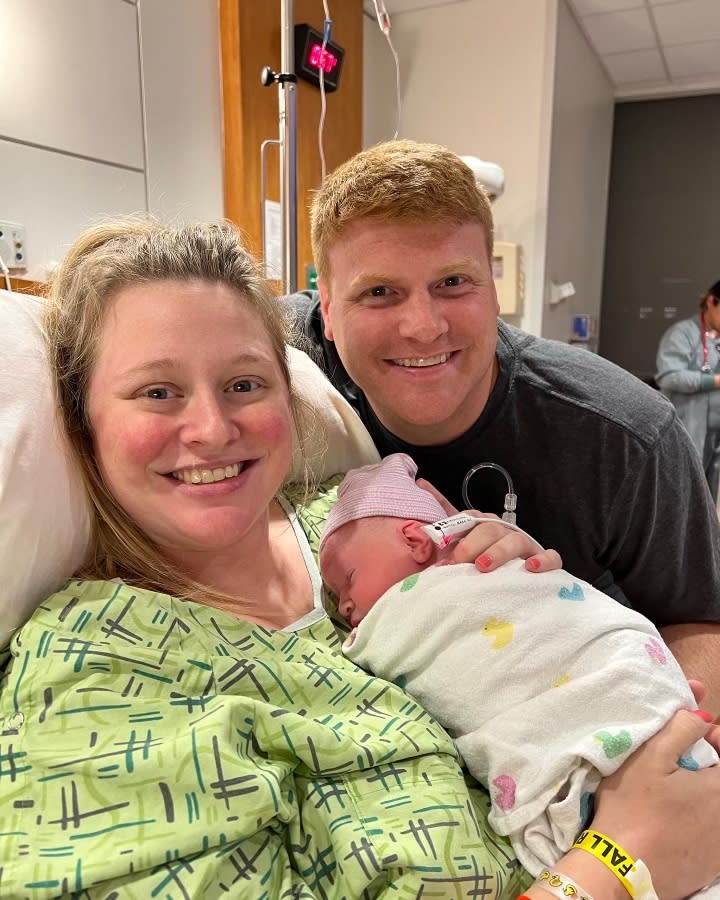
“A common thing with kids who have spina bifida is to either not be able to urinate on their own or potentially in the future not really have control of their bowel or bladder,” Rose, 28, of Augusta, Georgia, tells TODAY.com. “All three of our babies have been able to urinate on their own.” The three were all pregnant at the same time with babies diagnosed with spina bifida, a congenital defect where the neural tube develops incorrectly and it doesn’t close. What’s more, the backbone doesn’t connect, leaving the spinal cord and nerves exposed, which can lead to damage. In-utero surgery can fix it, reducing the likelihood of injury and infection. The women and their babies underwent surgery at Texas Children’s Hospital.
For various reasons, they all returned for an extended stay in the hospital. That’s when the friendship began.
“It’s just boring. There’s not a lot to do,” Malveaux, 30, of Augusta, Georgia, tells TODAY.com. “It was nice to have Alex and Brooke … to have other people to have conversations with.”
Prenatal surgery and later hospital stays
At 20 weeks, all the women underwent a scan when they learned their babies had spina bifida. Discovering such a diagnosis felt scary. Rose and Malveaux, who lived in the same city, were introduced by a mutual friend who learned they both carried babies with spina bifida.
“I was able to actually meet Lauren while she was going through the evaluation process because I was still (at Texas Children’s) recovering from surgery,” Rose says.
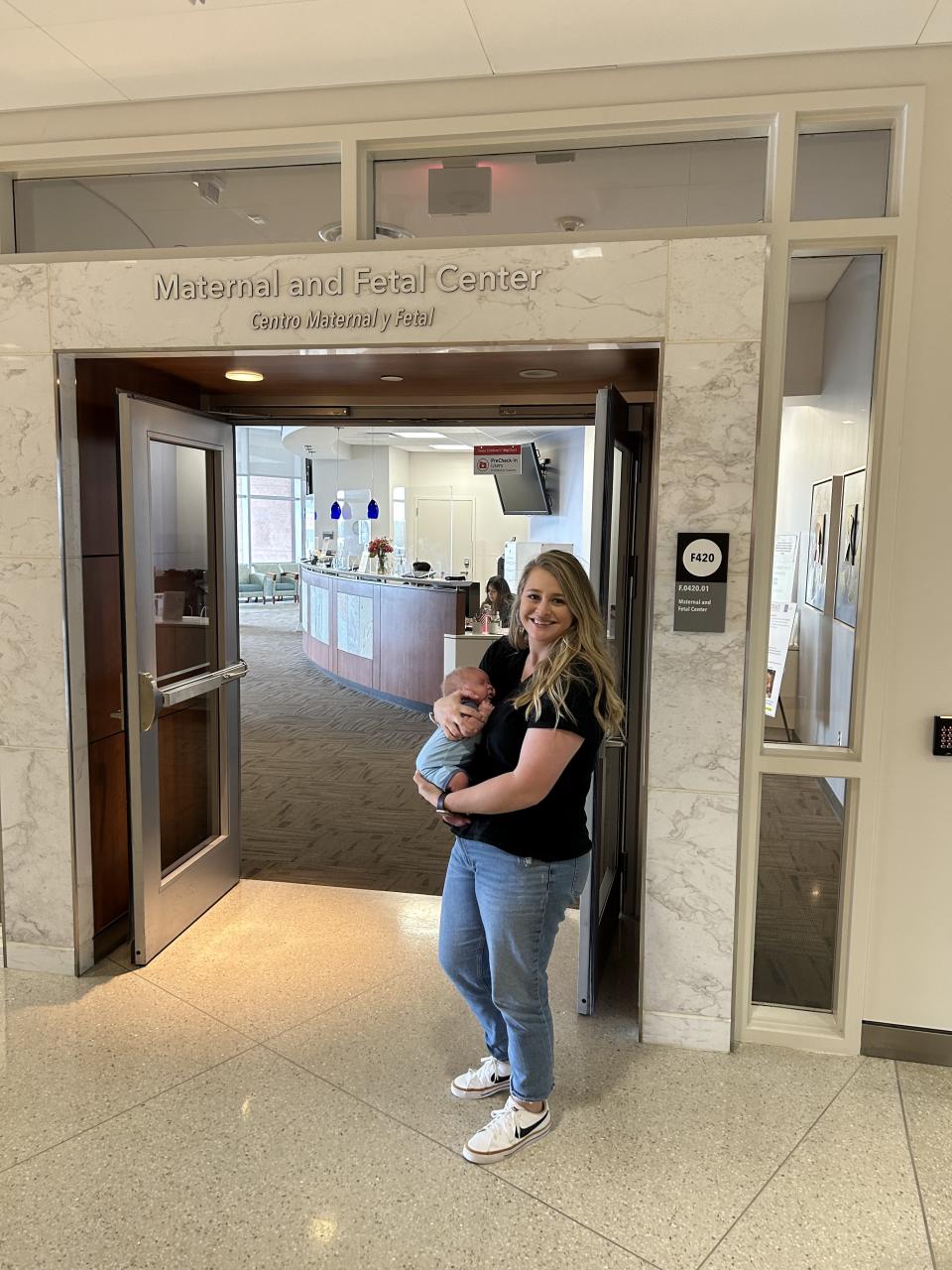
Surgery occurs at about 24 weeks so when Rose recovered, she returned home. Malveaux planned to have surgery and stay at the hospital for the remainder of her pregnancy so she could deliver there. Rose was going to return to Texas Children’s at 35 weeks, but then a discovery at a 34-week appointment sent her back to the hospital.
“My doctor that was here found membrane separation as well and they actually had me go to Texas the next day,” she says.
After she arrived, Rose discovered there was another woman in the department pregnant with a baby who underwent the spina bifida surgery. That was Tanton, who had been in the hospital starting at 32 weeks when she had membrane separation and leaked amniotic fluid. Soon, they connected on social media and then in the hospital.
Learning that their children had a congenital condition that needed surgery during pregnancy felt isolating and overwhelming.
“It is very terrifying. It’s almost like you can’t wrap your head around it because it’s something that’s so foreign and something you just truly can’t even really understand mentally,” Tanton, 31, of Beaumont, Texas, says. “When Alex and Lauren came in it made me feel so much less lonely, like immensely better.”
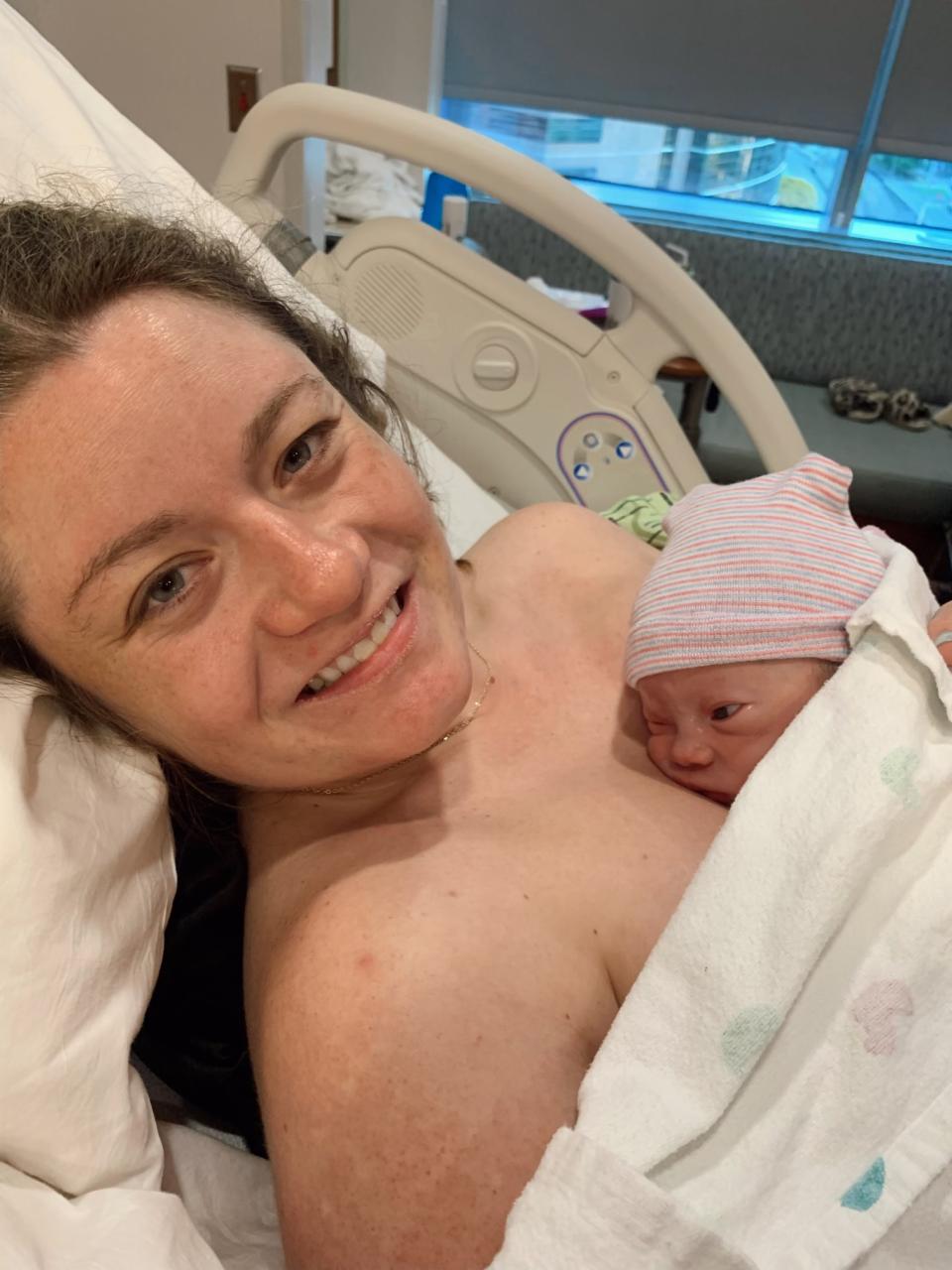
The three of them could walk around the hospital and gather in one another’s room to keep entertained as much as possible.
“They let us have free roam of the hospital,” Tanton says. “We got food delivered, things like that.”
Still, they worried about their babies and delivery and relied on one another to cope with those fears. For Malveaux, having Rose and Tanton helped a lot because her husband, who is in the military, was at training, and her parents were helping with her 2-year-old. Often, she was alone.
“We would go out and knock on each other’s doors and hang out and the nurses would laugh because that’s not a common thing,” she says. “Thankfully, we had that because I feel like we might have gone a little bit crazy if we didn’t.”
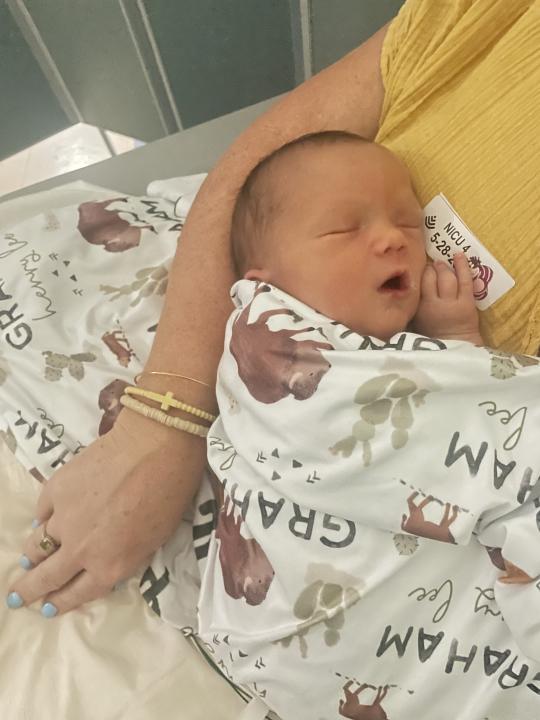
Even though they all say loved ones provided them with loads of support, they were experiencing something unique that the three of them got in a way others couldn’t.
“They were truly the ones who could understand what we were going through,” Tanton says. “(Our husbands) can’t really understand how you’re feeling as a mom who is pregnant and losing that idea of what your pregnancy was going to be like … what your thought your child’s life was going to look.”
For Malveaux, having Rose and Tanton reassured her that she made the right choice to have the surgery.
“It’s just so helpful having people who have gone before you,” she says. “You can ask questions and see other people’s experiences … we’re all just trying to learn as we go along.”
Such relationships are helpful to moms and their babies.
“They actually form a really strong bond,” Briana Baker, a Texas Children’s Fetal Center nurse coordinator, tells TODAY.com. “As you can imagine being admitted to the hospital for any amount of time is not easy. So, I definitely think that it helps these kinds of patients to form this bond and have that support.”
Tanton gave birth first to baby Andrew on May 19, 2023, at 36 weeks pregnant. Then Rose gave birth on May 25, 2023, at 37 weeks. Rose’s son, Graham, went to the neonatal intensive care unit for 37 days. While she was discharged, he wasn’t. Malveaux delivered her son Maverick at 35 weeks on June 20, 2023.
“I knew I was going to be there for so much longer than them after they both delivered. Part of me was like I was very happy because (they) got to meet (their) babies,” Malveaux says. “Then part of me was like, ‘Oh, I’m sad because now I’m by myself and you all are free in the outside world.’”
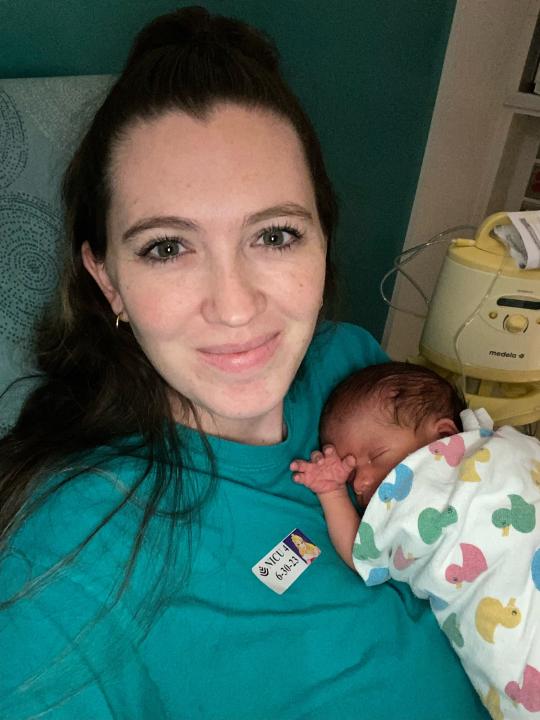
Sometimes when Rose visited her son in the NICU she connected with Malveaux for walks or meals.
“We still met up quite often for lunch and just like walks around the hospital because I knew she couldn’t leave,” Rose says.
Life at home
Tanton and baby Andrew returned home right away, and she settled back into life now as a mom of two. Rose and Malveaux also returned home and recently hung out with their families. The friendship still sustains them as they navigate life with infants with spina bifida.
“We can thankfully still be really close,” Malveaux says. “Anyone who has a child with spina bifida you have some sort of connection to them, but I think the three of us have an even deeper connection.”
Baker says that often when relationships form in the hospital, they continue to provide support to one another after the stay.
“It’s not just in that acute timeline where it is beneficial,” she says. “Making those connections (means) that later they could share information and experiences and hopefully that does improve the outcomes for their babies.”
All three moms say their boys are doing well.
“God gave us all easy, go with the flow babies because they had been through so much … and God knew we needed a break,” Rose says.
Graham had extra fluid in his brain, what’s called hydrocephalus, and underwent surgery to receive a shunt to drain the fluid. Maverick also has some fluid build-up, but doctors are monitoring him. The women rallied around Rose when Graham had his surgery.
“The fear and worry for her child would make me cry,” Tanton says. “I would literally cry like it was my own kid.”
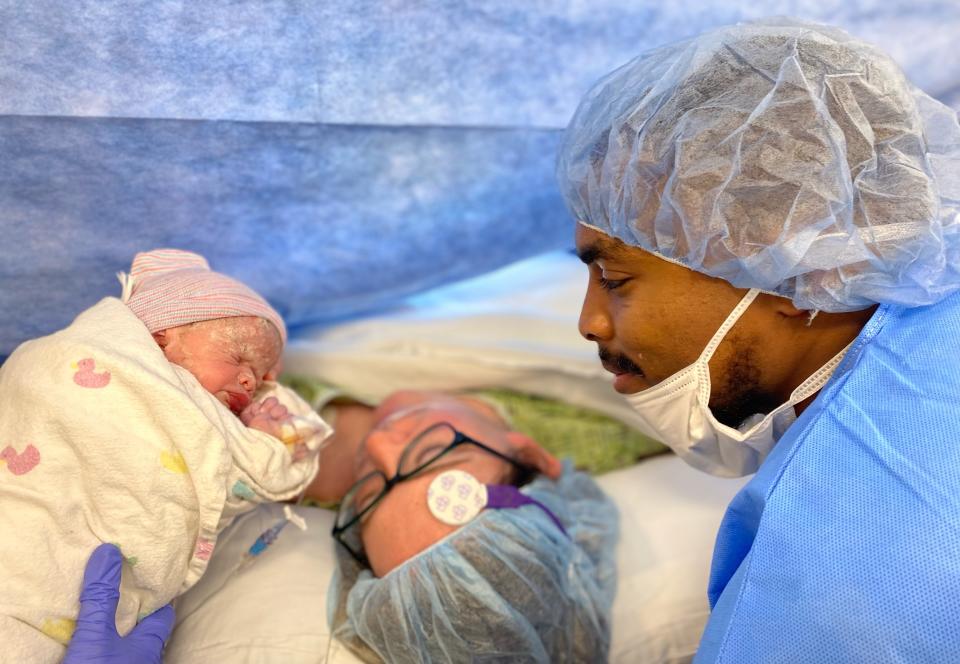
Having one another helps the women grapple with new motherhood and parenting babies with spina bifida.
“We share all of the small wins and the big wins with each other every single day,” Rose says. “There’s always going to be challenges and things that we’re going to overcome, and we’ll always cheer them on because like Lauren said, that’s the special bond we have — and we will have for each other’s kids.”
This article was originally published on TODAY.com

